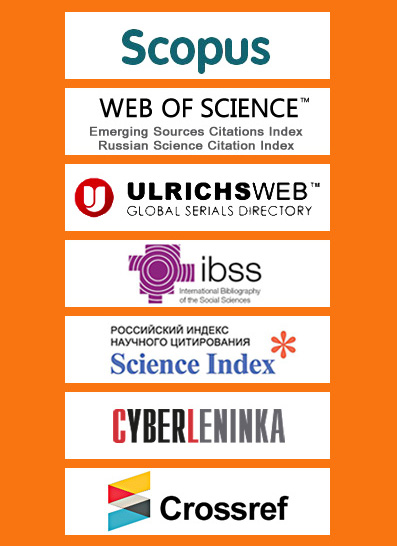Гражданская идентичность как условие ослабления этнического негативизма
Аннотация
Леокадия Михайловна Дробижева – доктор исторических наук, главный научный сотрудник, руководитель Центра исследования межнациональных отношений, Институт социологии РАН; профессор-исследователь НИУ ВШЭ, Адрес: 117218, Москва, ул. Кржижановского, 24/35, корп. 5. E–mail: drobizheva@yandex.ru
В данной статье исследуется понимание российской гражданской идентичности как в массовом общественном сознании, так и экспертами, занимающимися этнонациональной проблематикой. Автор разделяет гражданскую идентичность на категориальнуюи ассоциативную, консолидирующую, идентичность, основанную на ощущении сильнойсвязи с гражданами России. Изучается связь консолидирующей идентичности, присутствующей примерно у трети отождествляющих себя с гражданами России людей, с межэтническим негативизмом. Установлено, что она практически не снимает эмоциональную предубежденность, касающуюся абстрактных «иных», но позитивно влияет на отношение к непосредственному межэтническому общению в трудовой и неформальнойсферах, когда действуют рациональные и регулятивные составляющие установок и идентичности. Положительный эффект гражданской идентичности в большей степени проявляет себя в регионах, где межэтническое общение в повседневной практике сложилось исторически; сравниваются московская агломерация и Астраханская область. Препятствием для позитивного воздействия гражданской идентичности является отсутствие в массовом сознании четкого и полного представления о самом феномене гражданской идентичности и политической нации, что отражено в интервью экспертов из образовательной, научной и журналистской сфер деятельности. Исследование базируется на данных общероссийских опросов в 2014–2016 гг.: 24-й волны «Российского мониторинга экономики и здоровья населения» (RLMS-HSE), мониторинговых исследованиях Института социологии РАН (3-я и 4-я волны) и региональных опросах Отдела этносоциологии ИС РАН в Москве, Московской, Астраханской, Калининградской областях, Ставропольском крае, Республиках Карелия и Саха (Якутия) в 2014–2016 гг. по проекту «Ресурс межэтнического согласия в консолидации российскогообщества: общее и особенное в региональном разнообразии»

.jpg)




